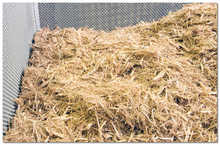Wood raw-material costs for European pulpmills continued to slide in early 2017 to reach their lowest levels in over five years, reports the Wood Resource Quarterly
 The European pulp industry has become much more competitive in the international pulp and paper market the past five years with wood fiber costs, which account for 55-65% of the production costs, having fallen more than in most other regions of the world, reports the Wood Resource Quarterly. Some of the biggest price declines have been for hardwood pulplogs in the Nordic countries.
The European pulp industry has become much more competitive in the international pulp and paper market the past five years with wood fiber costs, which account for 55-65% of the production costs, having fallen more than in most other regions of the world, reports the Wood Resource Quarterly. Some of the biggest price declines have been for hardwood pulplogs in the Nordic countries.
Wood costs for the pulp industry in Europe were generally lower in the 1Q/17 than in the previous quarter, continuing a downward trend that, depending on the country, has lasted for 4-6 years. The biggest price declines for pulplogs and sawmill residues in early 2017 occurred in Germany and France, according to the Wood Resource Quarterly (WRQ). The price reductions occurred mainly because of an oversupply of pulplogs, unchanged demand for wood fiber from the pulp industry, and reduced usage of raw-material by the competing wood pellet sector.
In neighboring Austria, conifer pulplog prices have been very stable during most of 2015 and 2016 (in Euro terms) and prices did not change much in the 1Q/17. However, the weakening of the Euro against the US dollar has resulted in Austrian pulplog prices falling seven percent in two years.
In the Nordic countries, wood fiber costs in the 1Q/17 were at their lowest levels since 2006 (in US dollars). This was mostly thanks to the weakening of the local currencies in both Sweden and Finland. The wood fiber costs currently account for about 60% of the manufacturing cost when manufacturing pulp in the region, according to Fisher International, so a reduction in prices for pulplogs and wood chips has a major impact in improving the competitiveness of the pulp and paper industry when competing in the global market place.
The pulp sectors in Portugal and Spain, which are the third and fourth largest consumers of hardwood logs in Europe, have also enjoyed a period of declining wood costs with the price levels in early 2017 being 20-25% below the fiber costs five years ago.
Hardwood fiber costs for pulpmill in Europe have fallen more rapidly than in other parts of the world from 2012 to 2017, and the industry has become much more competitive with competitors in North America, Latin America and Asia, according to the WRQ. For example, the price discrepancy for hardwood pulplogs between Sweden and the US South has fallen from US$62/odmt in the 1Q/12 to only US$9/odmt in the 1Q/17.
